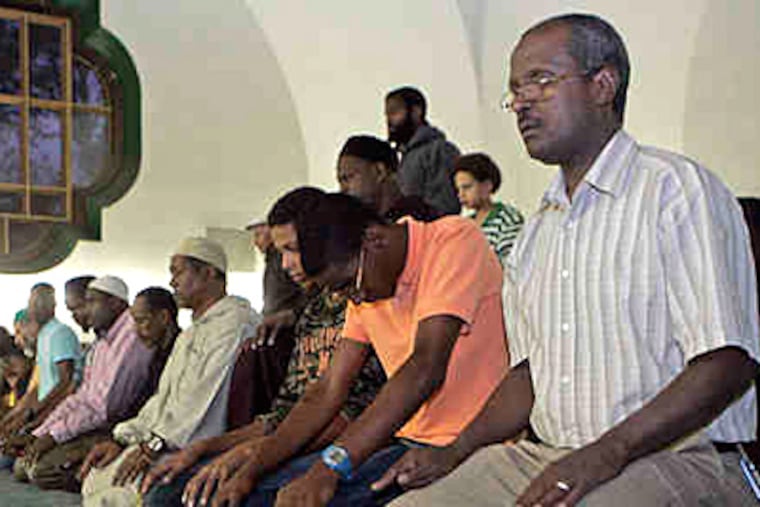Muslims often seen as outsiders
In fact, they have many things in common with other Americans.

It's early September, the time of year when Americans discover anew that Muslims live in their country.
Perhaps you've seen news reports highlighting the Islamic holy month of Ramadan, which began Aug. 21 and runs through Sept. 19. Soon we'll also be reading and hearing those "What's going on with Muslims?" stories we've come to expect with the anniversaries of the Sept. 11 attacks.
I suppose it's a strange sort of progress that many Americans have reverted to ignoring Muslim Americans most of the time instead of constantly worrying about whether they might be killed by them. The fear and prejudice that many Americans felt toward Muslim Americans following those terrible attacks has eased considerably.
So now, while this population is briefly in the spotlight again, it's a good time to ask ourselves just how much Muslim Americans actually resemble other Americans socially and economically. The short answer is: a lot. Abundant research shows they enjoy relatively high levels of education and income, and that they are concerned about the economy, health-care reform, and other top issues of the day, just like other Americans.
As someone who studies the Muslim American population, I've been impressed by the growing sophistication of the questions I've been receiving from reporters and others, especially at this time of year. I'm hearing a new level of understanding of Muslim beliefs and practices, and of how Muslim Americans fit into the national landscape. Compared with a few years ago, the questions revolve much less around stereotypes of Muslims as oppressors of women who are violent, singularly focused, and irrational.
Still, I have a hard time imagining that scholars who study Christian Americans get a lot of phone calls before one of their big religious holidays, such as Christmas, from reporters asking, essentially, "Hey, what's up with those Christians?" Although I welcome the interest implied by these calls and hope the conversations will help educate people, there's still an implication that Muslims are the "other." They are seen as being outside the mainstream of American life, even though the facts demonstrate that the opposite is true.
In other words, I wonder whether this recent progress is superficial. If there were another terrorist attack, how quickly would many Americans revert to their old fears and deny anew that Muslim Americans are, just like them, hardworking people with families, mortgages, houses of worship, and a few members of the group who are capable of doing very bad things?
Ramadan is a religious holiday much like religious holidays in other faith traditions. Its major difference from other faiths' holidays is that it consists of one lunar month, rather than separate days spread out across the year. As we spend the next few weeks hearing about it, I hope Americans will appreciate the true spirit of the season and embrace the fact that Muslims are an integral part of our national family - and that our country is better for it.
When President Obama spoke to an audience of students in Egypt at the beginning of the summer, he surprised many of them by pointing out that "since our founding, American Muslims have enriched the United States. They have fought in our wars, served in government, stood for civil rights, started businesses, taught at our universities, excelled in our sports arenas, won Nobel Prizes, built our tallest building, and lit the Olympic torch."
Obama's message - that "Islam is a part of America" - needs to be repeated within our own country as well, and not only during these few weeks. I'll believe it's being heard when I start getting an equal number of media inquiries during the 11 other months of the year.